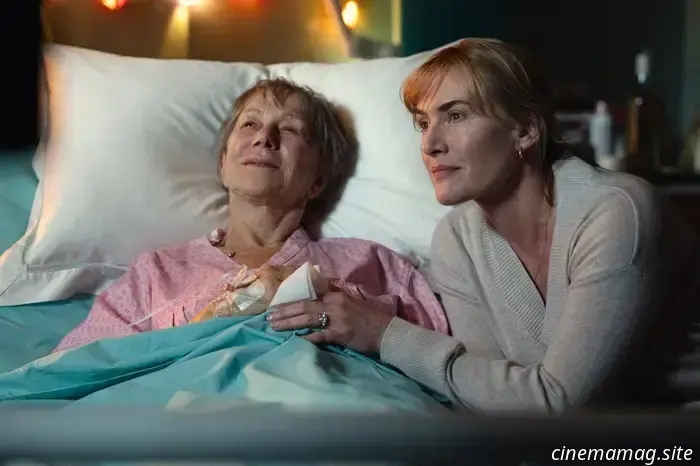.jpg)
Film Review – Nouvelle Vague (2025)
Nouvelle Vague, 2025.
Directed by Richard Linklater.
Starring Zoey Deutch, Guillaume Marbeck, Aubry Dullin, Alix Bénézech, Paolo Luka Noé, Tom Novembre, Jade Phan-Gia, Nicolas Dozol, Jean-Jacques Le Vessier, Bruno Dreyfürst, Adrien Rouyard, Jodie Ruth-Forest, Matthieu Penchinat, Laurent Mothe, Jonas Marmy, Benjamin Cléry, Côme Thieulin, Roxane Rivière, Niko Ravel, Antoine Besson, Blaise Pettebone, Pauline Belle, Léa Luce Busato and Benoît Bouthors.
SYNOPSIS:
After contributing to Cahiers du cinéma, a young Godard comes to the conclusion that filmmaking is the ultimate form of film criticism. He enlists Beauregard to finance a low-budget feature and collaborates with Truffaut on a treatment involving a gangster couple.
The idea of a black-and-white film about the making of film critic Jean-Luc Godard’s first feature, Breathless, may initially seem like an insular and pretentious vanity project, despite Richard Linklater's esteemed direction.
However, it is a pleasure to note that the final product is actually quite the opposite. Nouvelle Vague (alluding to the French New Wave of the 1960s and 70s, which launched over 100 now-renowned filmmakers) is, in short, enjoyable. It often resembles The Disaster Artist, but here the audacious creator, disregarding cinematic conventions and dismissing the anxieties and critiques from producers and the cast, ultimately crafts what is now considered a landmark of the French New Wave.
The film captures Jean-Luc Godard’s keen grasp of rule-defying cinematic techniques and his dedication to presenting art in its most authentic form, enhanced by the brisk and effective direction of Richard Linklater, who benefits from a screenplay by Holly Gent, Vincent Palmo Jr., and Michèle Pétin, adapted from Laetitia Masson's work.
This structure results in a lively pace, with each day of shooting reflecting the unique quirks of Jean-Luc Godard (played by Guillaume Marbeck), who improvises dialogue on set (though he and François Truffaut, portrayed by Adrien Rouyard, had a basic outline about a duo of robbers) and often keeps his actors (with Zoey Deutch as Jean Seberg seeking a project outside Hollywood, Aubry Dullin as Jean-Paul Belmondo who would attain stardom despite skepticism about the project, among others) uninformed until moments before a scene, hoping for their genuine emotions to shine through.
The filming days are peculiarly brief, with Godard refusing to shoot unless inspiration strikes, sometimes diverting himself with a pinball machine or relaxing. This understandably frustrates his producer Georges de Beauregard (Bruno Dreyfürst). Godard also has a disdain for continuity, claiming it is unnecessary and disrupts the atmosphere of the shoot. In one scene involving a woman disrobing, he wisely proposes that suggesting nudity is more powerful than showing it outright. Ultimately, it’s about a groundbreaking filmmaker dismantling narrative conventions, and this concept is readily appreciated even by those unfamiliar with Breathless.
In classic Richard Linklater style, this film presents a light-hearted and spontaneous perspective on the chaos surrounding the creation of a cinematic masterpiece. It's hard to ignore that enjoyment may hinge on one’s familiarity with Breathless, this filmmaking period, and the many cameos of its legendary creators (I experienced a thrill when Agnes Varda briefly appeared), especially in light of a later revelation regarding Godard’s reluctance to share extensive dialogue cues with Jean Seberg. At its core, Nouvelle Vague is a wildly chaotic and comedic portrayal of cinematic genius.
Flickering Myth Rating – Film: ★ ★ ★ / Movie: ★ ★ ★ ★
Robert Kojder
.jpg)
.jpg)
.jpg)
.jpg)
Other articles
 No Deposit Free Spins Casino UK - Receive 25 Free Spins Upon Registration Without Deposit - MovieMaker Magazine
In 2025, numerous thrilling no deposit free spins promotions are available from reputable online casinos in the UK. Players can discover offers featuring a range from 10 to
No Deposit Free Spins Casino UK - Receive 25 Free Spins Upon Registration Without Deposit - MovieMaker Magazine
In 2025, numerous thrilling no deposit free spins promotions are available from reputable online casinos in the UK. Players can discover offers featuring a range from 10 to
 Top Instant Withdrawal Casinos Without Verification in Canada 2025
Looking to play without revealing your identity? Opt for no KYC instant withdrawal casinos that ensure your payouts within 60 minutes. Enjoy slots and start winning real money today.
Top 5 No Deposit Bonuses for 2025 - MovieMaker Magazine
In the rapidly changing realm of online casinos, no deposit free spins remain one of the most sought-after and lucrative methods for gaming in 2025. These exclusive promotions enable players to enjoy the excitement of real-money slot games without any initial financial investment. Whether you're an occasional player or an experienced bonus seeker, no deposit free spins provide a risk-free opportunity to discover new casinos, try out popular slots, and potentially leave with actual cash rewards.
Top Instant Withdrawal Casinos Without Verification in Canada 2025
Looking to play without revealing your identity? Opt for no KYC instant withdrawal casinos that ensure your payouts within 60 minutes. Enjoy slots and start winning real money today.
Top 5 No Deposit Bonuses for 2025 - MovieMaker Magazine
In the rapidly changing realm of online casinos, no deposit free spins remain one of the most sought-after and lucrative methods for gaming in 2025. These exclusive promotions enable players to enjoy the excitement of real-money slot games without any initial financial investment. Whether you're an occasional player or an experienced bonus seeker, no deposit free spins provide a risk-free opportunity to discover new casinos, try out popular slots, and potentially leave with actual cash rewards.
.jpg) Film Review – Keeper (2025)
Keeper, 2025. Directed by Osgood Perkins. Featuring Tatiana Maslany, Rossif Sutherland, Birkett Turton, Eden Weiss, Logan Pierce, Claire Friesen, Christin Park, Tess Degenstein, Glen Gordon, Erin Boyes...
Film Review – Keeper (2025)
Keeper, 2025. Directed by Osgood Perkins. Featuring Tatiana Maslany, Rossif Sutherland, Birkett Turton, Eden Weiss, Logan Pierce, Claire Friesen, Christin Park, Tess Degenstein, Glen Gordon, Erin Boyes...
 The initial trailer for Kate Winslet's directorial debut, Goodbye June, has been released.
The initial trailer for Kate Winslet's directorial debut, Goodbye June, has been released.
The initial trailer for Kate Winslet's directorial debut, Goodbye June, has been released.
The initial trailer for Kate Winslet's directorial debut, Goodbye June, has been released.
Film Review – Nouvelle Vague (2025)
Nouvelle Vague, 2025. Réalisé par Richard Linklater. Avec Zoey Deutch, Guillaume Marbeck, Aubry Dullin, Alix Bénézech, Paolo Luka Noé, Tom Novembre, Jade Phan-Gia, Nicolas Dozol, Jean-Jacques Le V…
